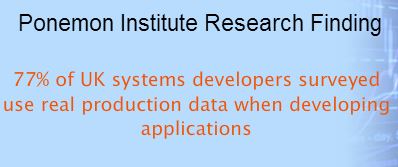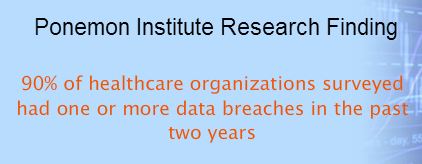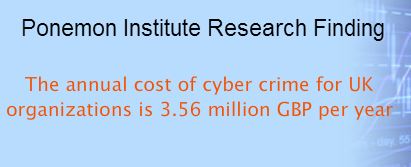Introduction: Reasons to Be Concerned
Many of us to try and keep things simple by using the same password for multiple websites and logins. Although understandable, it is not wise to do so. According to CNN Money, online hackers have infiltrated abut 110 million Americans. That is about half of the US adult population. That does not include figures from other countries which I am sure are also staggering. A study was conducted by researchers at the Ponemon Institute which conducts independent research on data protection, privacy and information security protocols and policies.
“Our goal is to enable organizations in both the private and public sectors to have a clearer understanding of the trends in practices, perceptions and potential threats that will affect the collection, management and safeguarding of personal and confidential information about individuals and organizations.” Taken from https://www.ponemon.org/

Ponemon Institute indicated a total of 432 million accounts belonging to those 110 million Americans were hacked into it. Think of all the ways and different places hackers can go to get access to your personal information. I am sure you have been to the doctor’s office recently, like in the past year or two. It was concluded that 90% of healthcare organizations had a data breach in the past two years. So, what this means is, if you have been to your doctor, filled out the necessary paperwork they hand you providing all sorts of personal information you would not want to fall in the wrong hands, there is a 90% your information could be compromised.
Many of you might remember around the holidays when Target, an American retailing company founded in 1902 and headquartered in Minneapolis, Minnesota, become a victim of a vicious malware attack. There were nearly 40 million credit card numbers as well as identifying personal information such as mailing addresses, phone numbers, social security numbers, and more. Thirty-three million Adobe users’ credentials were hacked into due to a malware attack. Ebay, a massive e-commerce giant, indicated that hackers had acquired access to sensitive information from all 145 million users of their site.

The report from CNN Money attributed the vast majority of the problem resting on the fact that there is massive widespread hesitation across corporations to be proactive. Many executives and high-level managers do not bother taking action of these issues until the problem falls on their desktops and they are forced to face it.
Dr. Larry Ponemon, Chairman and Founder of Ponemon Institute, on May 28, 2015 released the results of a new study the institute conducted on the efforts of retail companies and financial services to improve the time to detect and contain advanced threats. According to the findings, companies that handle financial services are doing a much better job than retail firms at using strategies and resources to improve their security measures. Financial service companies are much more optimistic that they will improve the time it takes to detect a threat and contain it. As of right now, financial service companies indicate it takes approximately 98 days before an advance threat is detected. Retail companies are reporting it takes up to seven months before they are able to detect a threat.

Be Diligent: Protect Your Information
That brings this discussion to you and your part in the ever-increasing internet security threats. As individuals, we can take action against these types of threats by being diligent in continually updating our passwords and our security questions. You want to try and think of things that only you know.
Too many of us use the same password for most of our accounts. Really, what you want to do is have a unique password for each of your important accounts. Re-using your password over and over again is very risky. If someone figures out your password for just one account, they can potentially get access to your email, home address and your hard-earned money.
I know how frustrated we can get when we are creating a new password for a new account and we have to think of a password that has so many numbers, letters and special characters and symbols and it has to be a certain length — not too long, not too short. As annoying this can be, there are reasons why such practices are in place. The main reason is to protect you and your information from hackers. Let me put it to you this way – if hackers can break into big conglomerate company databases and financial records such as E-Bay and Target, think how easy they can break into your own accounts if you do not take proper measures to ensure your safety from being hacked.
Another rule of thumb is to avoid using common phrases or words as your password. Make sure to regularly update your recovered email on all your accounts in case you need to do a password reset. Another feature is you can add a mobile cellular device to receive a code via a text message. This will make it more difficult for a hacker to get into your account unless they have your cell phone with them. You can also set up security questions to have your password reset. When setting up security questions, think of things that only you would know. The best technique is if you can create your own question than you can be creative and ask a question about a memory or a favorite place only you would know. Many of these questions ask what city you were born in or something similar, but that information could be easily found out by searching you on social media sites.
The last piece of advice I have for you is to keep your password somewhere safe. Do not put post it notes on your computer where people who walk by can easily see them. Even if you are at home, it is not good practice, because if you are renting an apartment, your landlord could come in and see all your passwords or if you have a handyman or plumber or roofer come to do repair work on your home and they walk by and are able to glance at your computer with all your sticky notes all over your computer, they can get your passwords.
There are password managers available, many of which are free to use. Two of the most common password managers are Dashlane and LastPass and Password Manager
. They are each FREE and can be downloaded instantly through Amazon. Some of the reviews are mixed, so make sure you check each one out and select the one which looks best for your needs.
If you have a website and sign up with a hosting company, such as BlueHost, you can get a premium built-in password app included within your membership.
I hope this article was helpful. Information and research for this article was made available from CNN Money and Ponemon Research Institute located in Traverse City, Michigan.
Please feel free to leave comments below and I will reply in a very timely manner. Please refer my affiliate disclaimer.
Steph



6 thoughts on “Protect Your Information”
Thanks for talking about security online. I don’t think about that very often and I know that I need to. You gave me some great advice about passwords as well. I will take your advice and change some passwords. Really don’t want to get hacked!
Hi Liz:
Thank you stopping by today and leaving a comment on the post about protecting your information. It is never fun being hacked and there are things we can do to protect ourselves. I am delighted I could help you. Please come back soon and visit because this site will only continue to grow.
Steph
I tried many password systems but found I had too many passwords to manage, and ended up with too few to enable me to remember them all. now I uses Dashlane and find it so easy to use.
Hi Christopher.
Thank you for your positive feedback on Dashlane. It has been around for awhile. There are many good reviews on it as well as some negative reviews, but the positive outweigh the negative reviews. Please come back and visit.
Steph
Great insight
I had my dropbox and google drive compromised It is a pain. I have found a very secure cloud that gives you 50 gigs for free. Now its very secure
Hi Alain:
Thank you for stopping today and leaving a comment. Your situation with having your Google Drive and Dropbox compromised is not uncommon. It has happened to many people. I am glad you have found a secure cloud which provides you with 50 Gigabytes of storage for free. Please stop back soon.
Steph